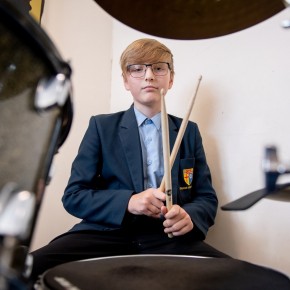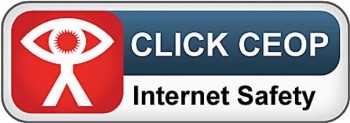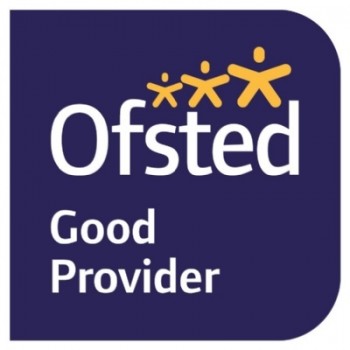|
When |
What |
|---|---|
|
September 2023 |
Begin to prepare for Work Experience by learning about the World of Work in your Self and Society lessons |
|
6th October 2023 |
Year 10 Work Experience launch assembly. Hear from students who did work experience last year. Learn how to get started. Get your paperwork. |
|
11th October 2023 |
Year 10 Work Experience Information Evening for Parents/Carers. 6 - 7pm |
|
October to Dec 2023 |
Research possible placements. Use personal connections to try to find placements. Approach employers to ask if they will take you. |
|
26th January 2024 |
Deadline for students to hand in work experience paperwork |
|
May Half Term 2024 |
Students to complete skills and expectations section of Work Experience Journal |
|
3rd -10th June 2024 |
Students to phone placement 1 – 2 weeks before to confirm arrangements |
|
17th – 21st June 2024 |
Work Experience Week. All students are expected to be out on placement |
|
28th June 2024 |
Deadline for students to hand in completed Work Experience Journal and to complete evaluation |
|
19th July 2024 |
Work Experience Awards issued at celebration assembly |
Students
Year 10 Work Experience
In the summer term of Year 10 we invite all Year 10 students to find their own Work Experience Placement.
This year, Year 10 Work Experience Week will be from 17th to 21st June 2024.
Why Work Experience?
Work Experience provides a first-hand experience of what the world of work is like.
Work experience will give you an opportunity to try something new, possibly in a career you might be interested in. There will be no school lessons during the week of 17th June as we expect all our students to be out of school and on placement.
Finding a work experience placement of your own is part of the experience! We encourage your independence and maturity as you make contact with potential employers.
Through a work experience placement you will become more confident and make new memories! You will develop your “employability skills” such as communication and problem solving.
Maybe your placement will be in a career that might interest you, maybe not, but whatever the placement, you will learn more about yourself and what sort of career you might be interested in. You might make new contacts for future employment or training opportunities. You will leave with a reference which you can use to help you with college and job applications.
Find Your Own Placement!
They often say in business, that its not what you know, but who you know that counts. This is certainly true when it comes to finding your own placement! Whilst there may be a dream job that you might like to try, most students find placements through their family/friend connections.
However, that said, we ask you not to work for your immediate family (so, if your parents run a pub, for example, not to work in that pub) as we find that students often work for their family during the holidays anyway, and we’d like you to have a different experience. That doesn’t mean that you can’t work for the same employer – some families find it easier to both find a placement, and arrange transport, if you go to the same place (so, for example, if your brother works for Aviva, you can take your work placement there and that can mean you travel together). If you are thinking about a work placement in a primary school, we ask you not to apply to the primary school you attended as a child.

Dream big, but be realistic! We really want you to experience the “World of Work” on your placement, and possibly try out your dream career. However, you need to be realistic and understand there may be limits placed on what you might be able to experience. For example, if I want to try out “Dentist” as a career, I am not going to actually be able to operate on people’s teeth, although I might be able to experience different roles within the practice, and observe what a dentist does. Likewise, there are some careers that for obvious reasons, won’t take work experience students, such as the Police, and Prison service.
My top tips for finding a placement are:
- Think about personal connections who might be able to help you find a placement. Do you have relatives/family friends who work for employers and might be happy to help you? You could ask your form tutor to help you identify a placement.
- Think about which locations you will be able to get to. The school won’t be providing transport, so whichever employer you decide to go with, you need to be able to get there. Maybe you can get a lift with a family member, or use the school bus to get to Stalham?
- Employers appreciate the bravery of being approached by the person wanting the placement. Making contact with the employer can be nerve-wracking, but speaking to employers is part of an essential skill you will need to use one day! Some employers will have instructions on their website. If not, give them a call or write a short, formal email.
View the Timeline
The Work Experience Journal
To help you prepare for your placement and make the most of the experience, you will complete a Work Experience Journal.
The journal is full of useful information and advice to help you prepare for work experience. It will help you to focus on the skills you already have and how to develop them further during your placement.
Filling in the journal will be your responsibility. You will be expected to look after it and keep it safe, as it will provide evidence of what you have achieved, which could help you when you make your next step in learning or work. You can use the information you record in your journal to help build your CV or use it to help you apply for a job.
More information about finding a work experience placement
You will have some support through your Self and Society lessons to help you with your applications skills these include writing a CV and a covering letter. You can also ask your tutor, and English teacher to support you.
Your first step will be to brainstorm different ideas for placement opportunities. We strongly encourage you to discuss this with your parent/carers as they might know some contacts. This Norfolk Work and Skills booklet is a good place to start as it can give you inspiration for the range of jobs available in Norfolk.
Once you have drawn up a short-list of about 3 different potential work experience employers, it is time to contact them and ask if they will take you. Do this in order, starting with your first choice, and only moving on to try the others on the list if they say no.
For many students, making first contact can be a challenging step, but one you will be pleased you took.
Many employers will want you to ring them, or pop in and ask them Face-to-Face, this way they can see if you are the sort of person they’d be happy to have. Don’t worry if you feel nervous, they will not mind if you are anxious, flustered or find it difficult to communicate!
Here’s how to make first contact:
- Check their details. If they have a website, try to search and see if they have any information about work experience. There might be a specific person to ring, or a form to fill in. It might say on the website some dates when they will/won’t accept work experience. If it doesn’t say anything about work experience, use the website to write down the contact details so you are prepared for the next step.
- Plan the right time. Think about visiting or ringing when they won’t be too busy, and if you are ringing, when you have some quiet surroundings and maybe the support of a parent or carer, or tutor from school.
- Plan what you are going to say. You are probably best to write down a short script so that you know can give all the information they need and won’t get flustered.
- Start by saying “hello” and then introduce yourself eg “my name is Claire Smith and I am a student at Stalham High School”
- Then ask for the right person to speak to regarding work experience eg “Is there someone I could speak to about work experience, please?” You might be able to connect with that person right away, or they might ask you to ring or come back later. If this happens, remember to write down the name of the person you need to speak to, and ask when would be a good time to call back.
- When you have found the right person you need to explain the following things
- explain that you in Year 10 and are asking if they might take you for a week’s work experience
- give the dates: 17th to 21st June 2024
- say why you are interested in working with that employer
- finish by saying you are grateful for any help they can give you
- What happens next will depend upon the employer but make sure you listen carefully.
- If they say they can’t help, just say “thank you” anyway
- If they say Yes, then you need to arrange for them to complete the forms. You will need to agree a time when you can leave the forms with them, and a time to pick them back up.
- They might ask you to ring back another time, speak to another person, or send in some information about yourself – we can help you at school with this.
Some employers might ask you to contact them by email. If they do, you need to write a formal email from your school email account. You will need to include the following:
- Choose a suitable subject heading such as “work experience enquiry”
- A formal greeting/the name of the company or your contact
- Introduce yourself as a student at Stalham High School and explain that you in Year 10 and are asking if they might take you for a week’s work experience
- give the dates: 17th to 21st June 2024
- say why you are interested in working with that employer
- finish by saying you are grateful for any help they can give you
Make sure you reply to all responses, and if you get no response, follow it up with another phone call or email.
- If they say no, reply and say thank you anyway
- If they say yes, explain that you will need to arrange for them to complete some forms, ask them how the best way will be to do that.
Remember: Always be polite, even if they can’t accept you. Don’t give up, keep trying!
The videos below might help you, but remember to ask Mrs Davison if you need any extra support.
How to find work experience
Choosing and finding your dream work experience placement
How to get the best from your work experience
How to deal with first day nerves
Follow us @StalhamHigh
Follow us @StalhamHigh









